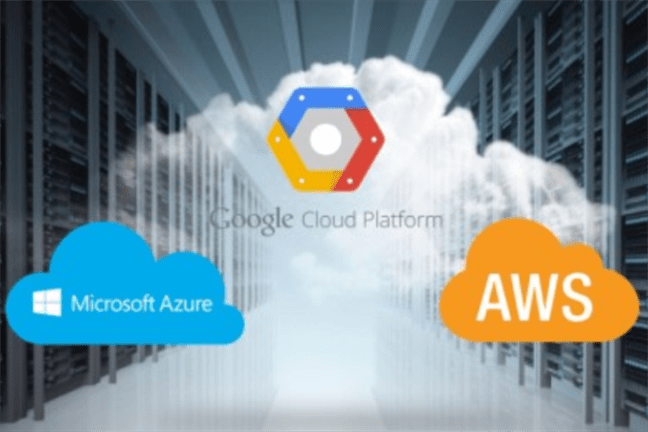Compare AWS, Google Cloud Platform, Microsoft, How To Choose The Best Platform
Based on Cloud Services and Infrastructure, choosing the right business cloud services have become an increasingly nuanced discussion that goes well beyond scale. The cloud services of AWS, Google Cloud Platform, Microsoft have an array of products covering all the possible need for our online operations. The list of all cloud providers offers the best platform and the infrastructure on which they specialize in. So it has become like a cloud battle in today’s time.
Amazon Web Services (AWS), Google Cloud Platform (GCP), Microsoft Azure are the tech giants of cloud service provider. Here we discuss the comparison of the services they provide along with the pros and cons of each cloud service provider based on Features and Services, Computer, Storage, Databases, and Networking, Pricing, Customers, Pros, and Cons, etc.
A.Features and Services:
- Amazon Web Services (AWS) offers the enormous range of services with nearly 100 across compute, storage, database, networking, analytics, IoT, management tools, developer tools, security, and business application. Amazon launched the 3 Amazon Machine Learning Services for image recognition (AWS Recognition), text to speech deep Learning models (Polly), and the engine that powers Alexa (Lex) to help developers create machine learning models.
- Google offers a Cloud Machine Learning Engine to build models based on its open source Tensor Flow deep learning library. It also provides a whole host of off-the-shelf APIs for natural language processing (NLP), translation, and computer vision (CV).
- Microsoft’s Azure Machine Learning Studio allows programmers to write, test and deploy the algorithm.
B. Compute, Storage, Databases, and Networking:
-
Amazon Web Services
- For Compute, Amazon Web Services provide EC2 instances and related services like Elastic Beanstalk for app development, AWS Lambda, Auto Scaling, and the EC2 Container Service, etc.
- It supports Relational Databases like Amazon Relational Database Service and NoSQL databases like Amazon Dynamo DB.
- AWS store includes its simple storage (S3), Elastic Block Storage (EBS), Elastic File System (EFS), etc.
2.Google
- For Compute, Google delivers VMs in Google’s data centers. They are very quick and fast to promote consistent performance, highly customizable depending on the needs of the customer, prompt for persistent disk storage, etc.
- It supports Relational Databases like Redshift and Google Cloud SQL and NoSQL databases like Google Bigtable.
- It also stores
3.Microsoft’s Azure
- For Compute, Microsoft’s Azure offering is centered around VM (Virtual Machine) with other tools like Resource Manager, Cloud Services, and its Microsoft’s Autoscaling service.
- It also supports Relational Databases like Azure SQL Database and NoSQL databases with Azure Document DB
- It provides storage services, Azure Blob Block storage as well as Table, File and Query Storage. It also offers Import Export, Site Recovery, and Azure Backup, etc.
Note: All three have the excellent networking capabilities with automated server load balancing and connectivity.
C.Pricing and Customers:
Note: all three give the different price calculation.
- For each customer are also of different, the high-profile user or customer affect to the whole system, i.e., to the cloud service provider of each.
D.Pros and Cons:
-
AWS Pros and Cons:
- Pros:
- The breadth and depth of the AWS is a plus for AWS.
- Cloud-services are enterprise-friendly.
- Vendor ranks highly on monitoring and policy features, security and reliability.
- It is openness and flexibility.
- Cons:
- It falls short to some degree is its hybrid cloud strategy.
- It feels complicated to navigate a large number of features.
2.Google Pros and Cons:
- Pros:
- Google has a sound track record of innovative cloud-native companies
- It has a good standing in the open source community.
- It focused on innovative projects at the larger organization
- Cons:
- It does not have such drawbacks as AWS does. However, it has the smallest footprint of global instances.
3.Azure Pros and Cons:
- Pros:
- It has a stable footing within an organization
- Azure naturally links well with the Key Microsoft on-premise systems like System Center, Active Directory, and Windows Server, etc.
- Cons:
- Clients may have issues with technical support, training, and breadth of the ISV partner ecosystem, documentation, etc.
- It is somewhat restrictive







